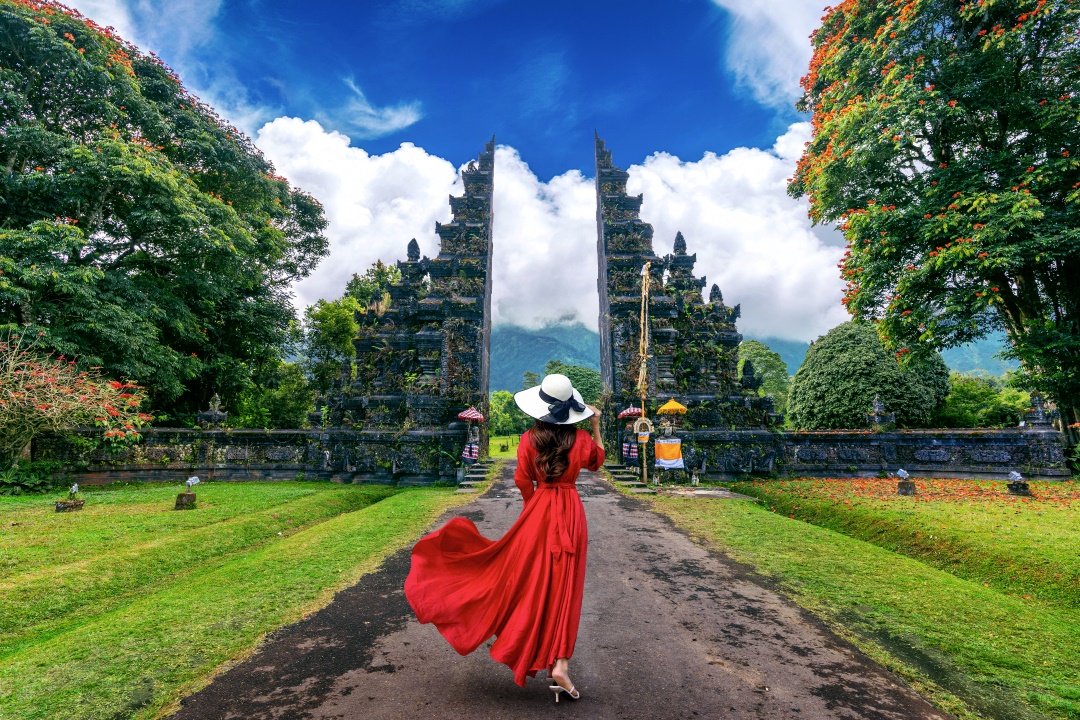Embarking on an adventure to Indonesia? Don’t miss out on these indispensable safety tips to make the most of your journey. From navigating bustling markets to exploring serene temples, we’ve got you covered with expert advice that guarantees a safe and memorable experience.

Quick Tips:
- Research Before You Go: Start your journey with thorough research about your destination. Understanding the local culture, customs, and safety guidelines is crucial.
- Pack Light and Smart: Travel light to stay agile and minimize the risk of theft. Keep essential documents, medications, and valuables in a secure and easily accessible bag.
- Stay Hydrated: Indonesia’s tropical climate demands constant hydration. Carry a refillable water bottle and avoid tap water.
- Befriend Locals: Engage with the locals to gain valuable insights and build connections. They can provide insider tips on safe areas and hidden gems.
- Respect Local Traditions: Dress modestly when visiting temples and conservative areas. Always remove your shoes before entering religious sites.
- Stay Aware of Scams: Be cautious of over-friendly strangers and common tourist scams. Trust your instincts and don’t share personal information with strangers.
- Use Reliable Transportation: Opt for reputable transportation services and check for safety measures, especially when using local transport options.
- Stay Updated on Health Precautions: Stay informed about any health advisories or vaccinations required for your trip. Carry a basic first-aid kit and any necessary medications.
- Secure Your Accommodation: Choose accommodations with good reviews and secure locks. Use hotel safes for your valuables.
- Emergency Contacts: Have a list of emergency contacts, including local authorities and your country’s embassy, readily available. Keep your loved ones informed of your whereabouts.
1. Research Before You Go:
Preparation is the key to a safe and enjoyable trip to Indonesia. Before you even set foot in the country, invest time in researching your destination. Start by familiarizing yourself with Indonesia’s culture, customs, and any current travel advisories. Understand the political climate and any potential safety concerns in the areas you plan to visit.
One essential aspect of your research is learning about the local laws and regulations. Indonesia has strict laws, especially when it comes to drugs and alcohol. Being aware of and respecting these laws can prevent you from encountering legal issues during your trip.
Additionally, it’s crucial to have a general understanding of the geography and transportation options within Indonesia. The country consists of thousands of islands, and getting around can be challenging. Researching transportation methods, routes, and schedules will help you plan your itinerary effectively.
2. Pack Light And Smart:
Packing is an art when it comes to travel in Indonesia. The tropical climate means lightweight, breathable clothing is a must. However, it’s essential to strike a balance between comfort and modesty, especially when visiting religious sites. Pack clothing that covers your shoulders and knees for temple visits, and don’t forget to include a sarong or scarf for added coverage.
When it comes to valuables, it’s best to travel light. Leave expensive jewelry and unnecessary electronics at home. Invest in a reliable anti-theft travel bag with RFID-blocking technology to keep your passport, credit cards, and other essentials secure. It’s also a good idea to make photocopies or digital scans of important documents like your passport, travel insurance, and itinerary in case of loss or theft.
3. Stay Hydrated:
Indonesia’s tropical climate can be quite unforgiving, especially if you’re not used to high humidity and temperatures. Staying hydrated is essential to avoid heat-related illnesses like heatstroke. Carry a reusable water bottle with you at all times and fill it with purified or bottled water. Avoid drinking tap water, as it may not be safe.
Coconut water is widely available in Indonesia and is not only refreshing but also an excellent source of hydration. Street vendors often sell it freshly cut, so take advantage of this natural and healthy option.
4. Befriend Locals:
One of the most enriching aspects of traveling in Indonesia is the opportunity to connect with the local people. Building relationships with locals not only enhances your cultural experience but can also contribute to your safety. Locals can provide valuable insights into safe areas to explore, hidden gems off the beaten path, and guidance on how to navigate cultural norms.
To connect with locals, consider learning a few basic phrases in Bahasa Indonesia, the country’s official language. A simple “hello” (selamat pagi/siang/malam) and “thank you” (terima kasih) can go a long way in breaking the ice and showing respect for the local culture.
5. Respect Local Traditions:
Indonesia is a country rich in cultural traditions and religious diversity. It’s important to respect and appreciate these traditions during your visit. When entering a temple or a religious site, dress modestly. This means covering your shoulders, knees, and cleavage. Many temples also require you to remove your shoes before entering, so be prepared for that.
Another essential aspect of showing respect is to refrain from public displays of affection, especially in conservative areas. Kissing and hugging in public can be seen as offensive in some parts of Indonesia. Be mindful of your actions and dress code to avoid unintentionally offending locals.
6. Stay Aware Of Scams:
While Indonesia is generally a safe country for travelers, it’s not immune to scams and petty crimes that can affect tourists. One common scam is the over-friendly local who offers to be your guide and then demands exorbitant fees at the end of the tour. To avoid this, always negotiate and agree on prices upfront for any services, including tours and transportation.
Another common scam involves fake tour operators or accommodations. To stay safe, book tours and accommodations through reputable agencies and websites. Read reviews and do your due diligence before making any bookings.
Moreover, be cautious of pickpockets in crowded places like markets and tourist attractions. Keep your belongings secure, preferably in a crossbody bag with anti-theft features.
7. Use Reliable Transportation:
Transportation in Indonesia can be an adventure in itself. While it’s essential to explore the country, you should prioritize safety when choosing your means of transportation. Opt for reputable providers, whether it’s taxis, ride-sharing services, or rental cars. Verify that the vehicles are in good condition, and drivers have proper licenses.
In larger cities like Jakarta and Bali, ride-sharing apps like Grab are a convenient and safe option for getting around. In rural areas, it’s wise to hire a driver who knows the local terrain and can navigate the roads more effectively. Always insist on seat belts, and if you’re renting a motorbike, wear a helmet.
8. Stay Updated On Health Precautions:
Your health is paramount when traveling, and staying informed about health precautions is crucial. Check with your healthcare provider or a travel clinic before your trip to ensure you’re up-to-date on vaccinations and medications. Malaria and dengue fever are concerns in some parts of Indonesia, so consult with a medical professional on appropriate preventive measures.
Additionally, consider purchasing travel insurance that covers medical emergencies and evacuation. Keep a basic first-aid kit with essentials like band-aids, antiseptic wipes, and any personal medications you may need.
9. Secure Your Accommodation:
Your choice of accommodation can significantly impact your safety and comfort in Indonesia. To ensure a secure stay, read reviews and book through trusted platforms. Look for accommodations with good security measures, such as 24-hour front desks and in-room safes for your valuables.
Upon check-in, take note of emergency exit routes and the location of fire extinguishers. Familiarize yourself with the hotel’s security procedures, including how to report any suspicious activity. It’s always a good practice to lock your room when you’re inside and use the hotel safe for passports, extra cash, and valuable items.
10. Emergency Contacts:
Having access to emergency contacts is essential for your peace of mind and safety. Ensure you have a list of important numbers, including local authorities, your country’s embassy or consulate, and your travel insurance provider. Save these numbers in your phone and have a hard copy as well.
Frequently Asked Questions (FAQs):
Most tourists can enter Indonesia visa-free for up to 30 days, but check the latest visa requirements based on your nationality.
A: It’s best to drink bottled or purified water. Avoid tap water to prevent waterborne illnesses.
A: Consult your doctor for vaccinations and consider malaria prophylaxis if traveling to high-risk areas.
A: Use mosquito repellent, wear long-sleeved clothing, and consider staying in air-conditioned accommodations with screens on windows.
A: Yes, you can, but driving conditions can be challenging. Ensure you have an international driver’s license and drive cautiously.
A: While Indonesia is generally safe, solo female travelers should exercise the same caution they would in any other country, such as avoiding poorly lit areas at night and being cautious of
over-friendly strangers.
Final Word:
In your quest to explore the stunning landscapes, rich cultures, and warm hospitality of Indonesia, safety should always be your steadfast companion. Armed with the knowledge gained from this comprehensive guide, you’re ready to embark on an adventure of a lifetime.
Remember, your journey starts with research and respect. The power of preparation ensures you’ll have a seamless voyage. As you pack light and smart, stay hydrated, and befriend locals, you’ll unlock the true essence of Indonesia. Vigilance against scams, choosing reliable transportation, and staying updated on health precautions will be your allies on this voyage.
Now, let the vibrant colors, delicious cuisine, and incredible diversity of Indonesia captivate your senses. Will you dare to tread the untrodden paths and immerse yourself in the wonders that await? Or will you simply dream of the day your adventure begins? The choice is yours, traveler. Safe travels!
